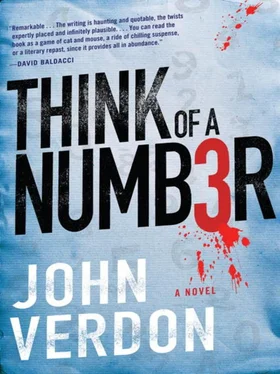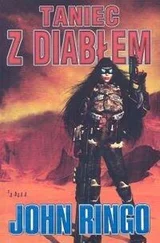Now he remembered. She’d told him that morning she planned to attend a town meeting at which the controversial proposal was slated to be discussed yet again. At issue was whether the town should compete to become the location of a facility its opponents referred to as a prison and its supporters called a treatment center. The nomenclature battle arose from the ambiguous bureaucratic language authorizing this pilot project for a new class of institution. It was to be known as a SCATE-State Correctional and Therapeutic Environment-and its dual purpose was the incarceration and rehabilitation of felony drug offenders. In fact, the bureaucratic language was quite impenetrable and left a lot of room for interpretation and argument.
It was a touchy subject between them-not because he didn’t share her desire to keep the SCATE out of Walnut Crossing but because he wasn’t joining the battle as sharply as she thought he should. “There are probably half a dozen people who’ll make out like bandits,” she said grimly, “and everyone else in the valley-and everyone who has to drive through the valley-will be stuck with a wretched eyesore for the rest of their lives. And for what? For the so-called rehabilitation of a pack of drug-dealing creeps? Give me a break!”
“Other towns are competing for it. With any luck, one will win.”
She smiled bleakly. “Sure, if their town boards are even more corrupt than ours, that might happen.”
Feeling the heat of her indignation as a form of pressure on himself, he decided to try changing the subject.
“Shall I make us a couple of omelets?” He watched her hunger vying briefly with her residual anger. Her hunger won.
“No green peppers,” she warned. “I don’t like them.”
“Why do you buy them?”
“I don’t know. Certainly not for omelets.”
“You want any scallions?”
“No scallions.”
She set the table while he beat the eggs and heated the pans.
“You want anything to drink?” he asked.
She shook her head. He knew she never drank anything with her meals, but he asked anyway. Peculiar little quirk, he thought, to keep asking that question.
Neither of them spoke more than a few words until they’d finished eating and both had given their empty plates a ritual nudge toward the center of the table.
“Tell me about your day,” she said.
“My day? You mean my meeting with the ace homicide team?”
“You weren’t impressed?”
“Oh, I was impressed. If you wanted to write a book about dysfunctional team dynamics, run by the Captain from Hell, you could set up a tape recorder in that place and transcribe it word for word.”
“Worse than what you retired from?”
He was slow in answering, not because he was unsure of the answer but because of the fraught intonation he detected in the word retired . He decided to respond to the words instead of the tone.
“There were some difficult people in the city, but the Captain from Hell operates on a whole other level of arrogance and insecurity. He’s desperate to impress the DA, has no respect for his own people, no real feeling for the case. Every question, every comment, was either hostile or off the point, usually both.”
She eyed him speculatively. “I’m not surprised.”
“What do you mean?”
She shrugged lightly. It looked like she was trying to compose her expression to convey as little as possible. “Just that I’m not surprised. I think if you came home and said you’d spent the day with the best homicide team you’d ever met, that would have surprised me. That’s all.”
He knew damn well that wasn’t all. But he was smart enough to know that Madeleine was smarter than he was and there was no way he was going to cajole her into talking about something she wasn’t inclined to talk about.
“Well,” he said, “the fact is, it was exhausting and unencouraging. Right now I intend to put it out of my mind and do something completely different.”
It was a statement made without forethought and followed by a mental blank. Moving on to something completely different was not as easy as it sounded. The difficulties of the day continued to swirl before him, along with Madeleine’s enigmatic reaction. At that moment the option which for the past week had been tugging at the edges of his resistance, the option he’d desperately kept out of sight but not entirely out of mind, again intruded. This time, unexpectedly, along with it came a surge of determination to take the action he’d been avoiding.
“The box…” he said. His throat was constricted, his voice raspy, as he forced the subject into the open before his fear of it could recapture him, before he even knew how he would finish the sentence.
She looked up at him from her empty plate-calm, curious, attentive-waiting for him to go on.
“His drawings… What… I mean, why…?” He struggled to coax from the conflict and confusion in his heart a rational question.
The effort was unnecessary. Madeleine’s ability to see his thoughts in his eyes always exceeded his ability to articulate them.
“We need to say good-bye.” Her voice was gentle, relaxed.
He stared down at the table. Nothing in his mind was forming into words.
“It’s been a long time,” she said. “Danny is gone, and we never said good-bye to him.”
He nodded, almost imperceptibly. His sense of time was dissolving, his mind strangely empty.
When the phone rang, he felt as if he were being awakened, yanked back into the world-a world of familiar, measurable, describable problems. Madeleine was still at the table with him, but he wasn’t sure how long they’d been sitting there.
“Do you want me to answer it?” she asked.
“That’s all right. I’ll get it.” He hesitated, like a computer reloading information, then stood up, a little unsteadily, and went to the den.
“Gurney.” Answering the phone that way-the way he’d answered it for so many years in homicide-was a habit he’d found difficult to break.
The voice that greeted him was bright, aggressive, artificially warm. It brought to mind that old rule of salesmanship: Always smile when you’re speaking on the phone, because it makes you sound friendlier.
“Dave, I’m glad you’re there! This is Sheridan Kline. I hope I didn’t interrupt your dinner.”
“What can I do for you?”
“I’ll get right to the point. I believe you’re the kind of man I can be perfectly frank with. I know your reputation. This afternoon I had a glimpse of the reason for it. I was impressed. I hope I’m not embarrassing you.”
Gurney was wondering where this was leading. “You’re being very kind.”
“Not kind. Truthful. I’m calling because this case cries out for someone of your ability, and I’d love to find a way to take advantage of your talent.”
“You know I’m retired, right?”
“So I was told. And I’m sure that going back to the old routine is the last thing you’d want to do. I’m not suggesting anything like that. I have a feeling this case is going to be very big, and I’d love to have access to your thinking.”
“I’m not sure what you’re asking me to do.”
“Ideally,” said Kline, “I’d like you to find out who killed Mark Mellery.”
“Isn’t that what the BCI Major Crimes Unit is for?”
“Sure. And with some luck they may eventually succeed.”
“But?”
“But I want to improve my odds. This case is too important to leave to the mercy of our usual procedures. I want an ace up my sleeve.”
“I don’t see how I’d fit in.”
“You don’t see yourself working for BCI? Don’t worry. I figured Rod wasn’t your kind of guy. No, you’d report to me personally. We could set you up as some kind of adjunct investigator or consultant to my office, whatever would work for you.”
Читать дальше












